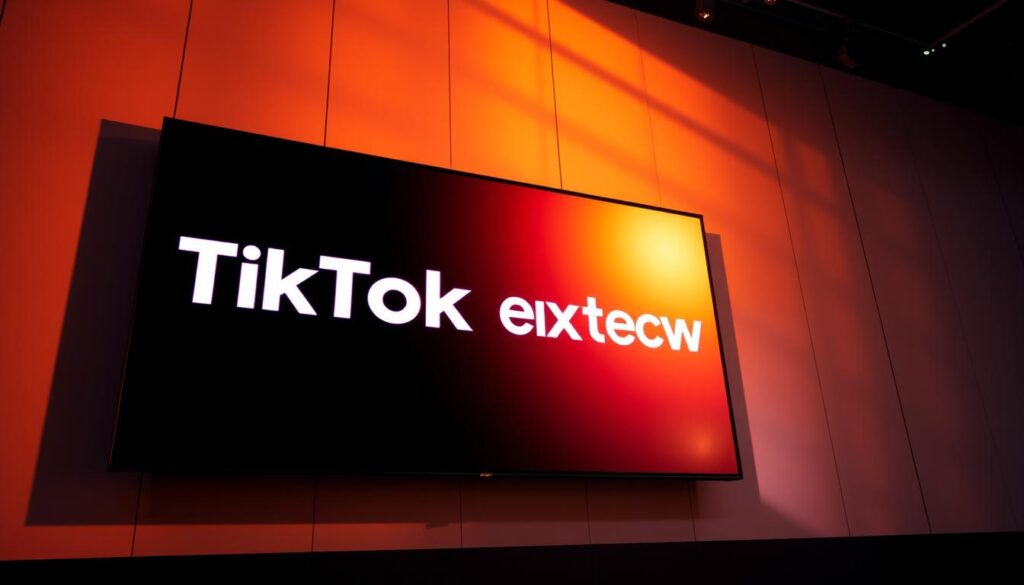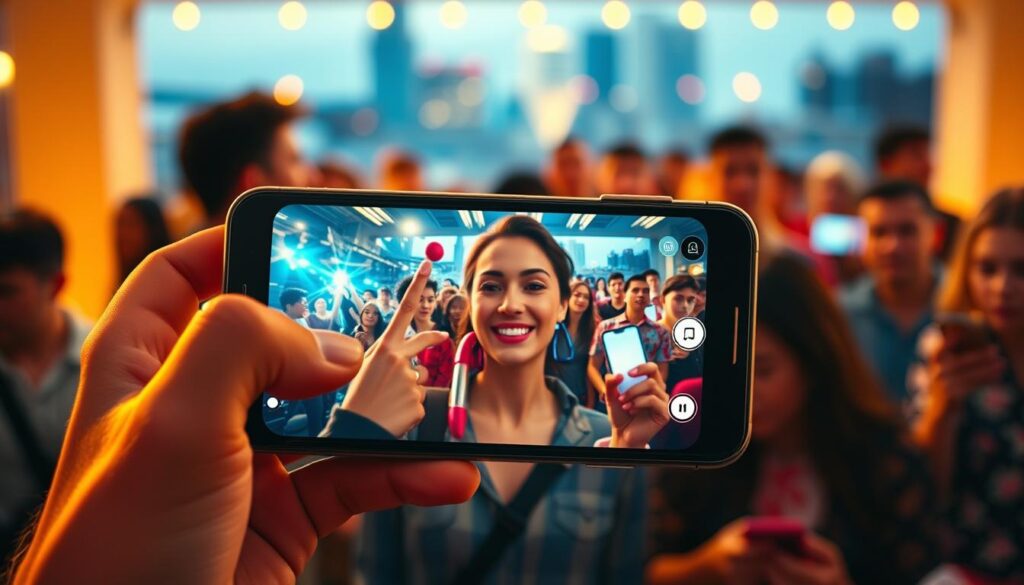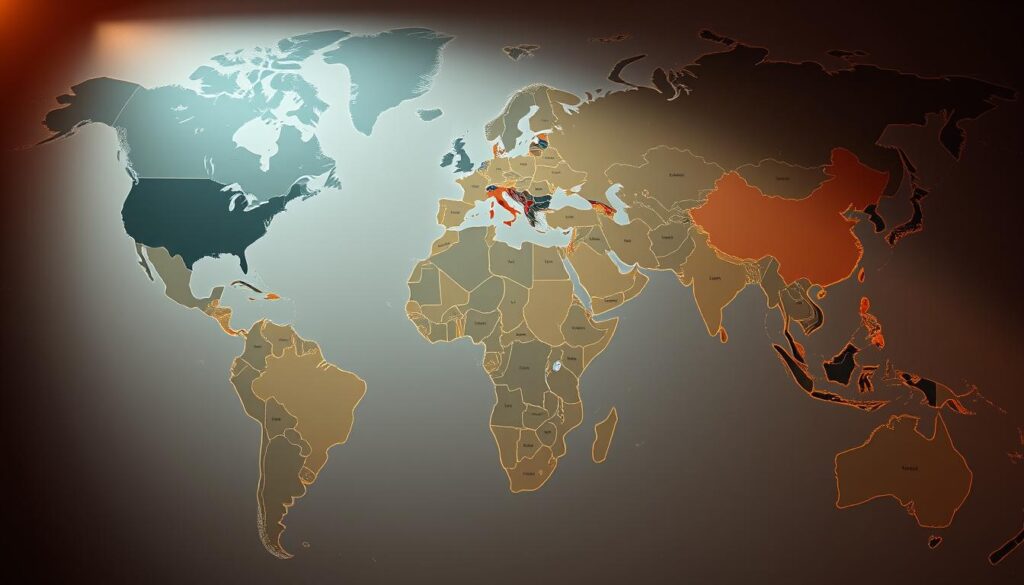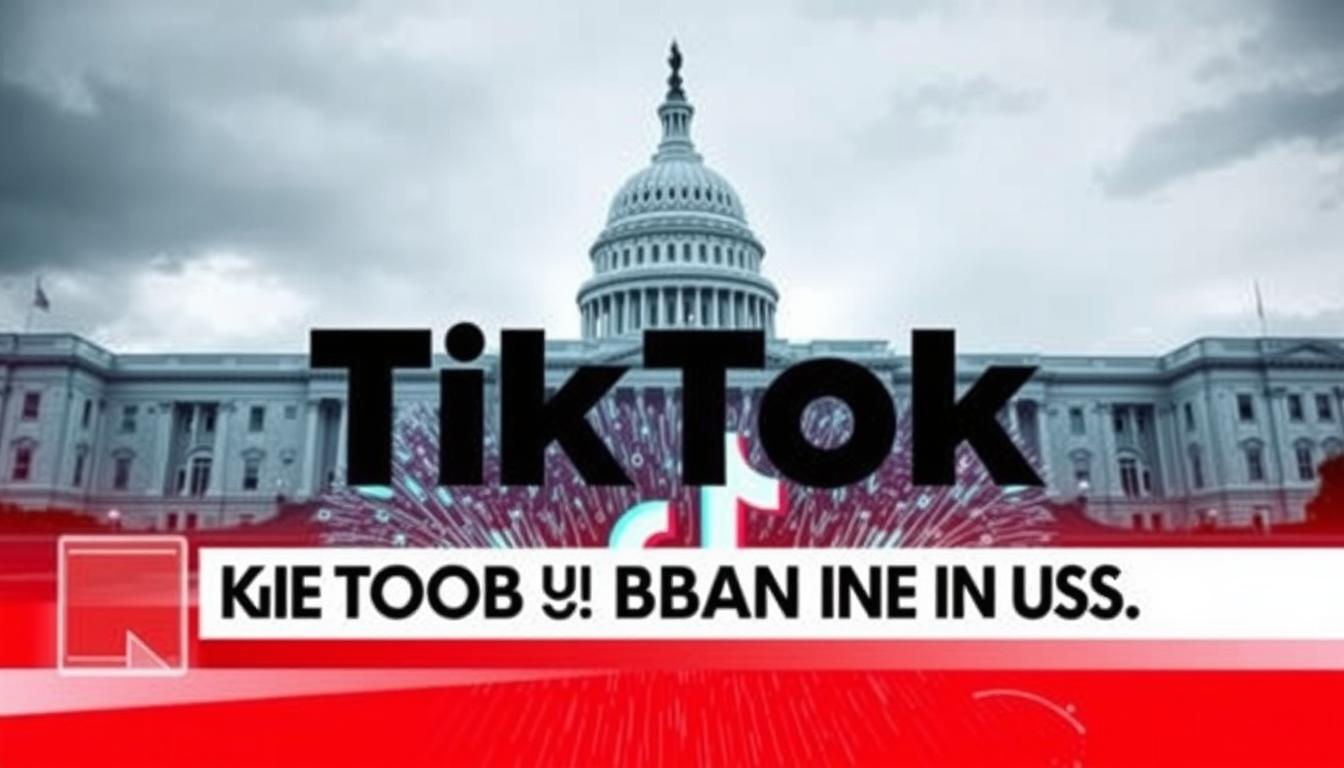Rumors about a possible ban on the popular video-sharing app have sparked debates nationwide. Lawmakers continue raising concerns over data privacy and national security risks linked to foreign ownership. Recent extensions on deadlines add uncertainty for millions of users.
Bipartisan efforts highlight growing scrutiny around how personal data gets handled. Temporary removals from app stores earlier this year fueled speculation. Legal battles and potential buyouts further complicate the platform’s future.
This article explores key developments, including ongoing negotiations and global implications. Discover how these changes could impact content creators and trending hashtags strategies.
Key Takeaways
- Political debates focus on security risks tied to foreign-owned apps.
- Deadline extensions leave the app’s status uncertain.
- Legal challenges may delay or alter potential restrictions.
- User data protection remains a top concern.
- Global policies influence decisions in the United States.
Is TikTok Getting Banned in the US? The Current Status
Recent political moves have kept the fate of a major social platform hanging in the balance. The April deadline passed with another extension, marking the second 75-day delay since January. President Donald Trump’s executive order on Truth Social pushed negotiations into overtime.

Legal Pressure and Penalties
Attorney General Pam Bondi ramped up pressure on tech giants. Letters to Apple and Google warned of $5,000-per-user fines for non-compliance. “App stores must adhere to data laws,” she emphasized in a Bloomberg interview.
“We’re giving this a final chance to resolve security concerns.”
Ownership and Tariff Hurdles
The proposed “TikTok America” deal, offering 50% U.S. ownership, stalled amid Trump’s 34% China tariffs. Akamai’s SEC filing revealed liability risks for supporting the platform. After a 3-week removal, the app returned to stores on February 13—but the battle isn’t over.
Why the US Government Wants to Ban TikTok
Government officials cite serious risks tied to foreign-owned apps. At the heart of the debate are fears about national security and how user data gets handled. The 2024 Protecting Americans from Foreign Adversary Controlled Applications Act reflects these growing concerns.

National Security Concerns
The FBI and DOJ repeatedly warned about potential access by China’s Communist Party. ByteDance, the parent company, faces allegations of mandatory data-sharing with Beijing. While ByteDance denies collaboration, lawmakers argue its Chinese roots create unavoidable risks.
Oracle’s proposed role as a security auditor aims to address these issues. Their plan includes vetting the app’s algorithm—a move critics call a partial fix. Congressional hearings highlight fears about *algorithmic manipulation* influencing US users.
Data Privacy Issues
Compared to US-based platforms, this app collects more granular data, including device identifiers and location history. A side-by-side analysis reveals stark differences:
| Data Type | TikTok | US Social Platforms |
|---|---|---|
| Location Tracking | Precise GPS | City-level |
| Device Info | Full hardware details | Basic model |
| Third-Party Sharing | With affiliates | Limited |
“Foreign apps operating here must meet our security standards—no exceptions.”
Despite ByteDance’s denials, the push for stricter law continues. Oracle’s involvement could reshape operations, but skeptics demand full US ownership.
Political Actions and Legal Battles
Legal tensions surrounding the video-sharing platform have reached new heights in Washington. Debates over presidential authority and congressional oversight dominate discussions. Multiple extensions and bipartisan proposals reveal deep divisions.

Trump’s Executive Orders and Delays
President Donald Trump’s executive order in 2023 set a divestment deadline, later extended twice. Critics argue these delays undermine national security. Supporters claim they allow time for negotiations.
A unique twist emerged with tariffs tied to the platform’s fate. The administration floated a 34% levy on Chinese tech imports as leverage. Legal experts question if this strategy violates trade law.
Congressional Pushback and Legislation
Senators Markey, Van Hollen, and Booker proposed an October 2025 extension. Their bill emphasizes due process for users and businesses. Meanwhile, the House Select Committee issued a bipartisan statement demanding stricter safeguards.
Key congressional actions include:
- 2023 Divestment Law: Required ByteDance to sell U.S. operations.
- Service Provider Liability: Democratic senators warned Apple/Google of fines.
- CCP Safeguards: House Republicans seek proof of zero content manipulation.
“Presidential overreach risks setting a dangerous precedent.”
Constitutional challenges loom, with courts weighing free speech concerns. The platform’s future hinges on approval of revised ownership structures or judicial rulings.
Potential Buyers and Sale Negotiations
Sale discussions have intensified, with several high-profile investors showing interest. Companies like Oracle and Microsoft are vying for a stake, while regulatory hurdles complicate the process. The outcome could reshape the platform’s operations and user experience.

Oracle, Microsoft, and Other Contenders
Oracle proposed a 20% stake with oversight of the algorithm, acting as a “security guarantor.” Bloomberg reports this deal aims to address U.S. security concerns. Meanwhile, Microsoft explored joining an investors consortium, though details remain private.
Amazon unexpectedly entered talks with a last-minute offer, per CBS. Frank McCourt’s Project Liberty bid, backed by O’Leary and Ohanian, emphasizes data independence. Each proposal faces scrutiny over how business structures align with national interests.
Hurdles in Finalizing the Deal
Chinese approval for algorithm transfers remains a roadblock. Beijing’s export controls could veto key tech sharing. Additionally, Trump’s 34% tariffs on Chinese tech imports create financial barriers.
Legal experts note that splitting the parent company’s assets may trigger antitrust reviews. “Any deal must satisfy both nations’ regulators,” warns a Wall Street analyst. Delays loom as stakeholders navigate these layered challenges.
How the Ban Affects TikTok Users
Millions of creators face uncertainty as potential restrictions loom. Changes could disrupt access to favorite features overnight. Understanding these shifts helps prepare for what’s next.

App Availability and Functionality
If removed from app stores, Android users can sideload via APKs from the official site. Cloudflare data shows an 85% traffic drop during January’s brief shutdown—a preview of post-ban scenarios.
Smart TVs already pulled the app. LG, Vizio, and Amazon dropped support, limiting big-screen viewing. iOS workarounds require international Apple IDs, a tricky but viable path.
Alternatives if TikTok Is Banned
Creators are migrating to Instagram Reels and YouTube Shorts. These platforms offer similar video formats and monetization options. Below, a quick comparison:
| Platform | Avg. Watch Time | Creator Payout |
|---|---|---|
| Reels | 25 seconds | $0.01–$0.03/view |
| Shorts | 30 seconds | $0.02–$0.05/view |
“Brand deals shift quickly. Diversify your content across platforms now.”
Saved content? Use app tools like data export before potential locks. Proactive steps ease transitions during this fluid time.
The Global Context of TikTok Bans
India’s massive 2020 restriction set a precedent other nations now follow. Over 200 million users lost access overnight in what officials called a “digital strike” against data risks. This bold move revealed how quickly a popular platform can disappear.

Nations With Full Restrictions
Afghanistan, India, and Iran implemented complete ban orders. India cited security threats from China-based parent company ByteDance. The year-long shutdown there forced creators to migrate to domestic alternatives like Moj and MX TakaTak.
Iran’s 2022 prohibition focused on content violating Islamic values. Unlike the united states‘ government concerns, Tehran targeted Western cultural influence. These varied reasons show how one app triggers different responses globally.
Comparing International Approaches
The EU, Canada, and Australia banned the app only on government devices. Brussels enforced strict content moderation rules instead of outright restrictions. “Our focus is transparency, not removal,” stated an EU commissioner.
Key differences from the united states situation:
- First Amendment protections limit U.S. options
- ByteDance expanded local operations in Europe to comply
- Australia’s review process takes 12 months minimum
“Cross-border data flows require multinational solutions—unilateral bans just shift the problem.”
Legal experts note that without global standards, companies face patchwork regulations. ByteDance’s restructuring efforts highlight this challenge across restricted markets.
Conclusion
Uncertainty looms as key deadlines approach for the controversial platform. The ongoing deal negotiations could reshape digital business practices, but legal hurdles remain.
Experts suggest two paths: a sale with strict oversight or extended court battles. Either outcome will impact US-China tech relations long-term.
For creators, this time demands flexibility. Diversify content across platforms and monitor congressional updates. Stay informed as administration policies evolve.
Watch for new law proposals and prepare for potential ban scenarios. Proactive steps today ease transitions tomorrow.

